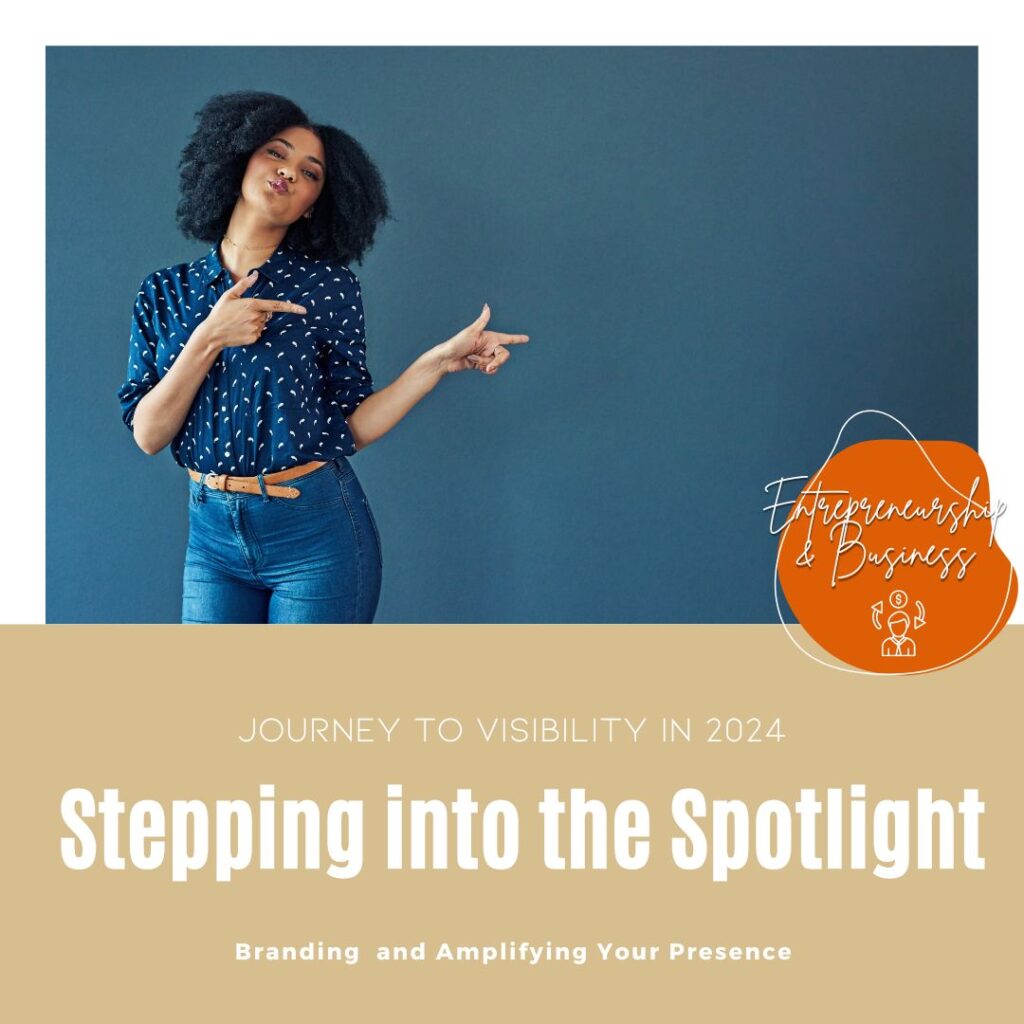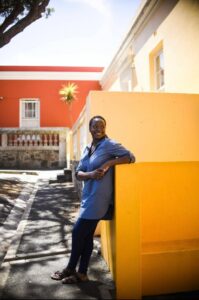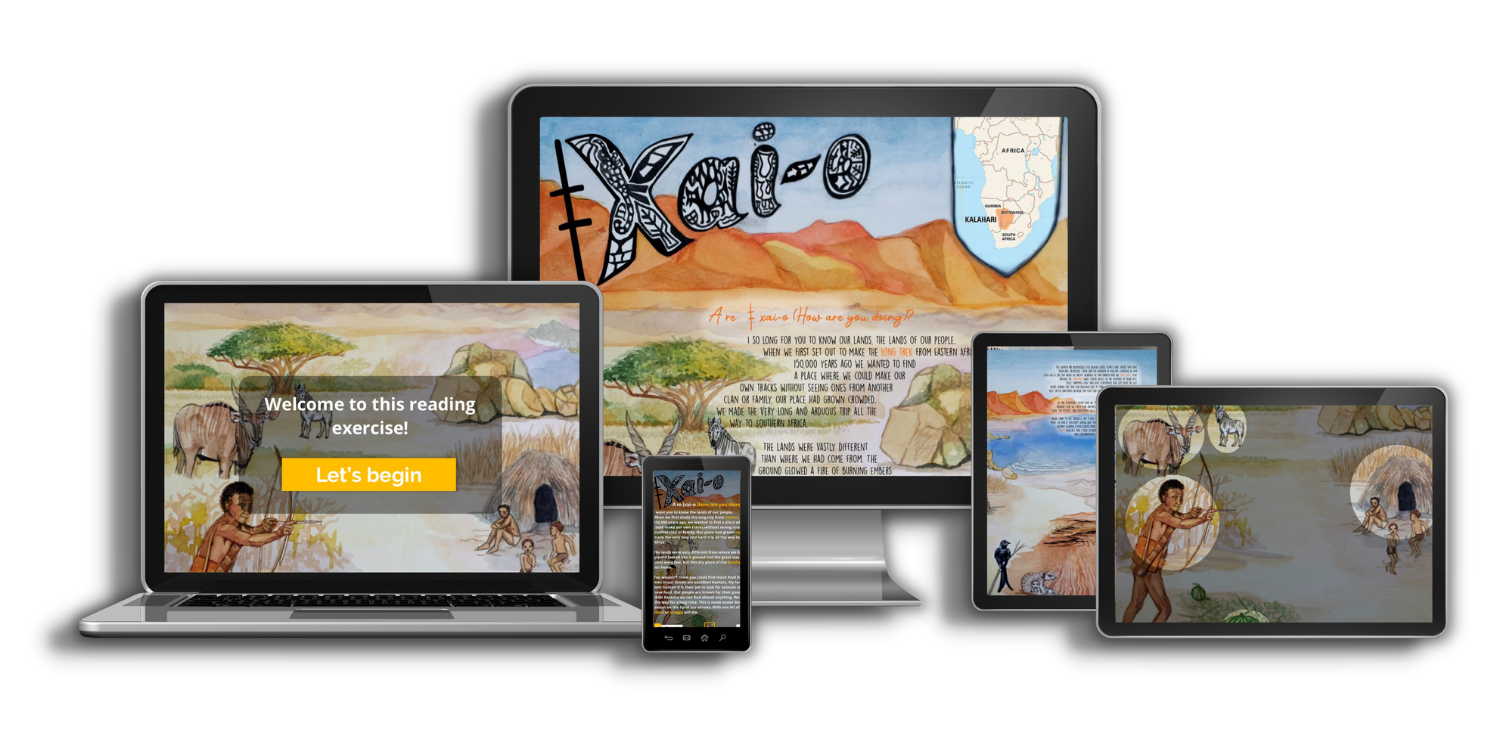Peniel began an amazing journey in January, when they entered Mizzou’s Entrepreneurship Alliance at the Trulaske College of Business for the spring semester, a transformative 12-week program. In the first two weeks of the Entrepreneurship Alliance program, Peniel set out on a journey to bring their business idea to life.
Week 1 was dedicated to creating a solid foundation, which included carefully selecting a business name, writing a concise description, and researching the Canvas business model and value proposition. This laid the framework for Week 2, when the emphasis moved to knowing the client, a critical component of every successful enterprise. Peniel, along with other participants, practiced problem framing, honing their ability to identify and explain client pain areas.
The week’s highlight was the start of customer interviews, which provided a hands-on opportunity to connect directly with the target audience while obtaining essential insights that would drive the development of effective and customer-centric solutions. These early weeks not only defined the business concept but also fostered a customer-focused perspective, establishing the framework for a strategic and empathic approach to entrepreneurship inside the dynamic 10-week program at Mizzou’s Entrepreneurship Alliance.
In week 3, we looked at prototyping and networking. This week, Prof. C scheduled a call for us to talk with him directly and avoid the 1:30 am livestream. What a lifesaver!
We got the chance to meet Rathabile from the Centre of Innovation and Entrepreneurship at UWC. We were able to discuss different ways for our business to collaborate, as we are housed within the ideas of Mizzou.
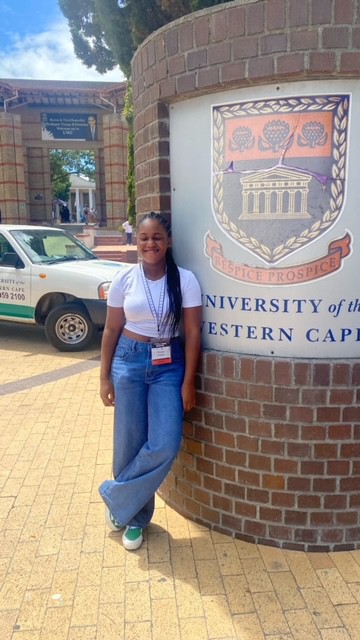
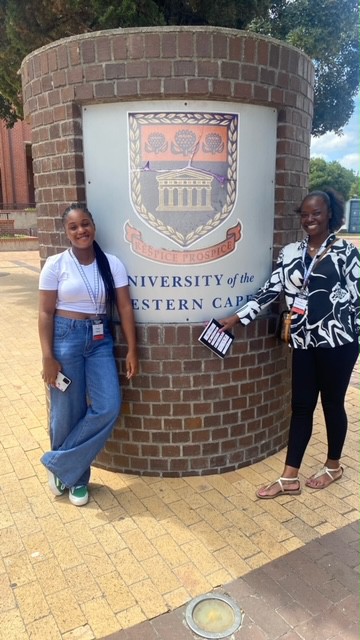
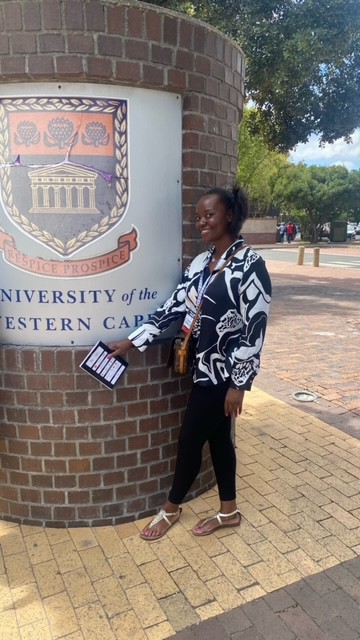
Our business took a radical turn during weeks four through six of Mizzou’s Entrepreneur Alliance Program. Our main focus was on developing an enticing value proposition and becoming experts in making persuasive presentations. The training emphasized the need of research into our client base and the necessity of powerful, concise communications. We honed focused on the distinct benefits of our product or service and learnt to steer clear of tedious details when making our pitch. Our communication strategy is now built on these lessons, which have helped us confidently and clearly navigate the competitive entrepreneurial world.
Following our conversation with Delphine, we made significant changes to our pitch deck. We incorporated gameplay slides and video, and also shortened the introduction story, among other adjustments.
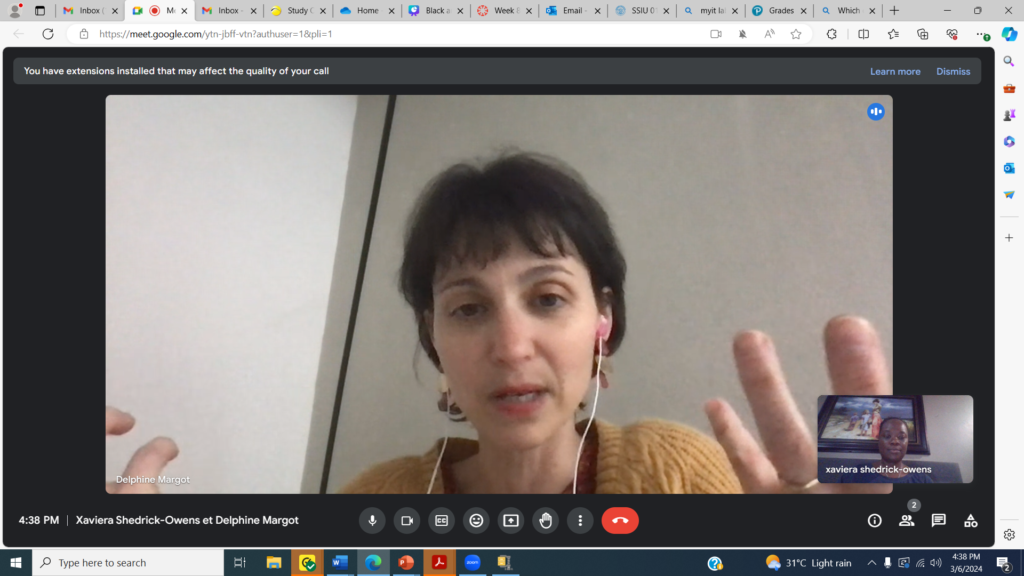
Game Jams @Goethe
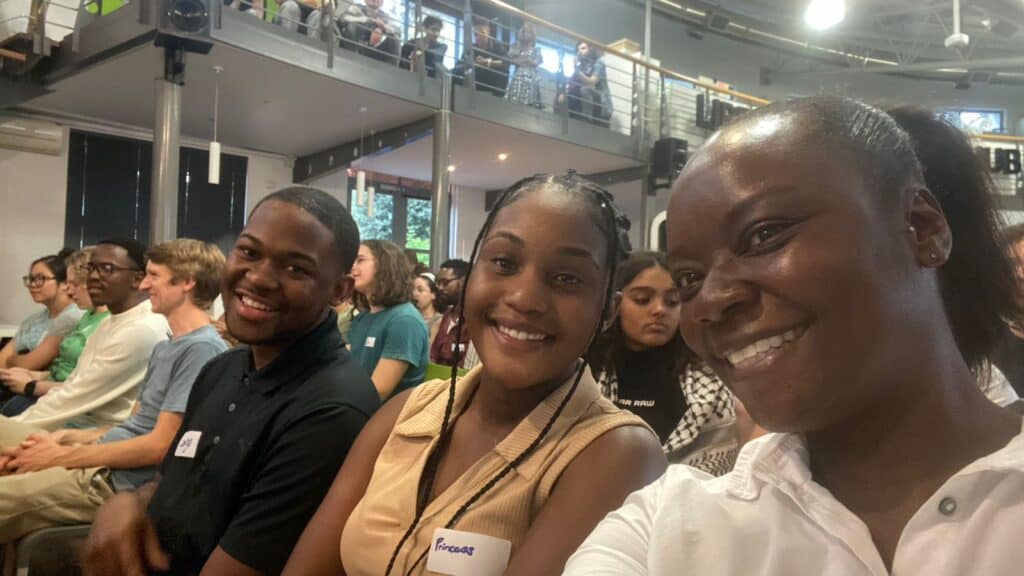
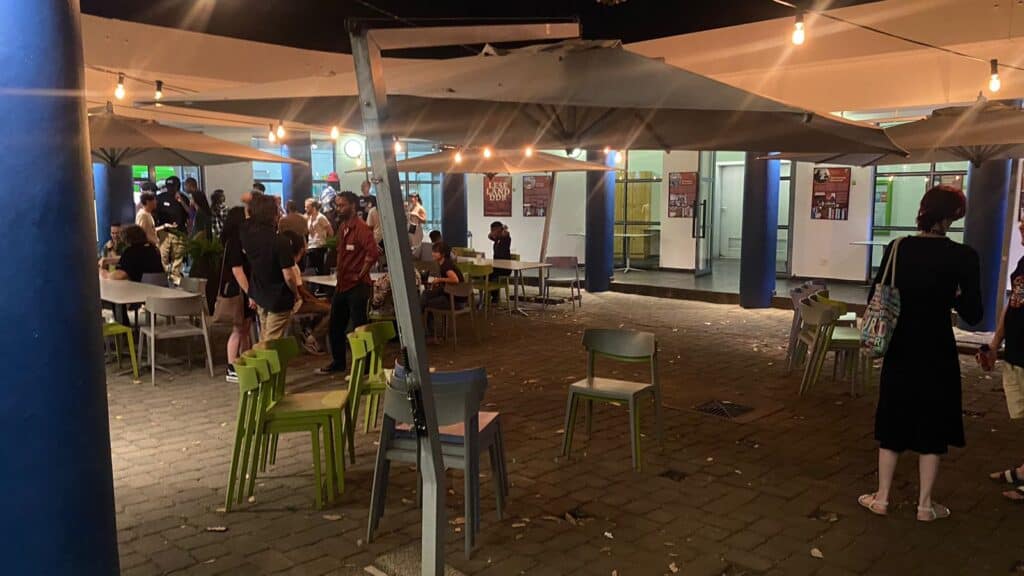
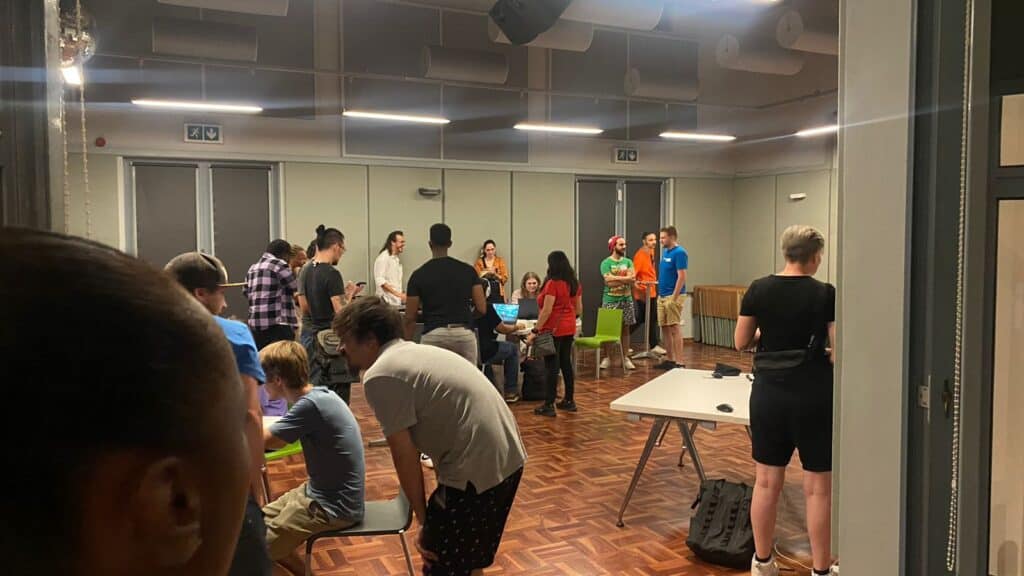
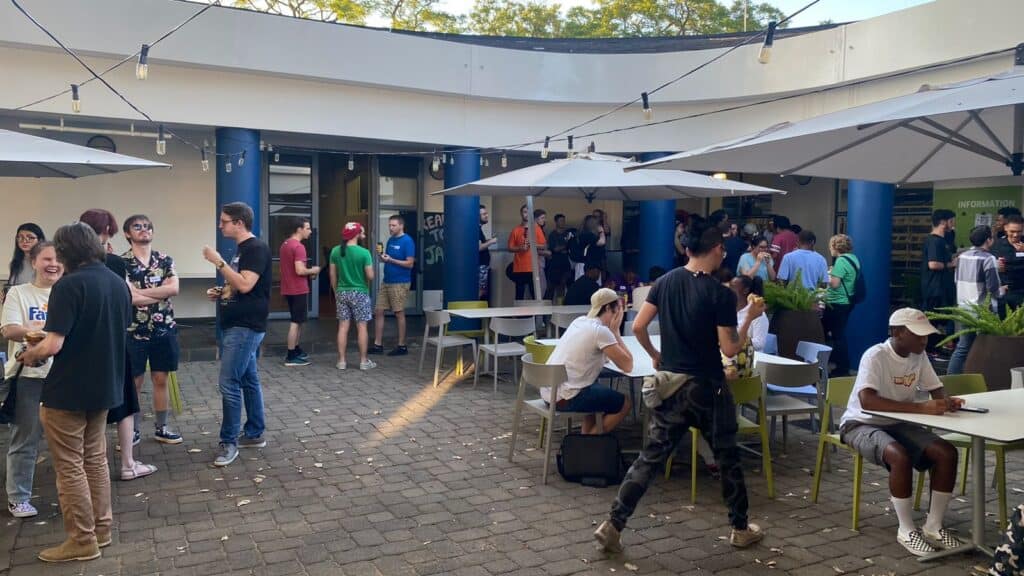
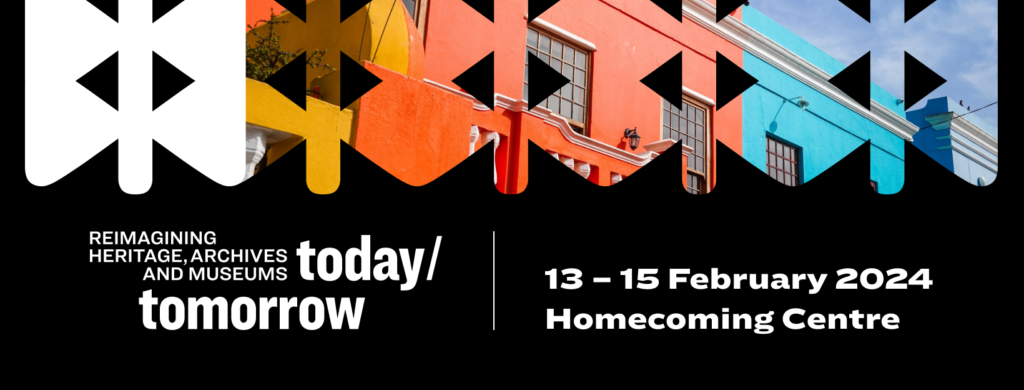
We embarked on an incredible adventure in February, taking a long road trip with the purpose of broadening our perspective on historical archives, particularly their use in digital media. Our destination was the Homecoming Centre in Cape Town, where the Institut Français d’Afrique du Sud/French Institute of South Africa (IFAS) and the Embassy of France, in collaboration with local partners, hosted the “Reimagining Heritage, Archives, and Museums: Today/Tomorrow” conference from February 13-15, 2024.
According to the website, the event covered a wide range of topics, including funding, restitution, ‘Indigenization,’ and collections care and management in an African context, as well as community engagement, contemporary design as heritage preservation, the role of private collectors in heritage, and digital futures. The conference’s primary purpose was to provide a foundation for future French-South African cooperation projects.
Ambassador David Martinon (who is quite a man of humor), France’s ambassador to South Africa, Lesotho, and Malawi, expressed enthusiasm for the innovative initiative, which was developed through intensive multi-stakeholder input. He went on to say, “This dynamic programme was developed through an extensive multi-stakeholder consultation, resulting in a convening that we hope will be a platform for generative conversation and facilitate new ideas that lead to concrete tools and programmes.”
A curatorial committee under the direction of curators Ngaire Blankenberg, Emmanuel Kasarhérou, and curatorial assistant Kefiloe Siwisa carefully curated the program with a focus on proposals that offer fresh viewpoints on managing and interpreting heritage in (Southern) Africa in 2024 and beyond, as well as African collections in French museums.
Our primary goal during this experience was to broaden our perspective on the sector and actively contact people in the field. We wanted to look into how ideas about funding, restitution, ‘Indigenization,’ and digital futures may be applied to gaming. The event not only provided a forum for transformative discussions, but it also facilitated connections that broadened our understanding of the dynamic convergence of history, archives, and digital innovation, particularly in the context of gaming.
On our journey, we had the chance to learn about the work that Memorist is doing in heritage, and being able to talk to Bachaar was particularly exciting and really made the drive worth it. Our last night was spent at the Zeitz MOCAA where we were able to learn about Zahia and her installment titled Seismography of Struggle: Towards a Global History of Critical and Cultural Journals.
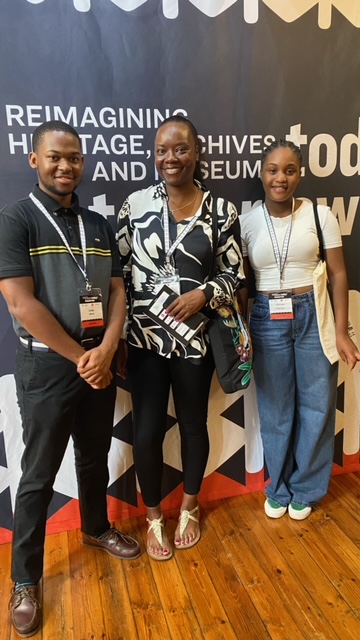
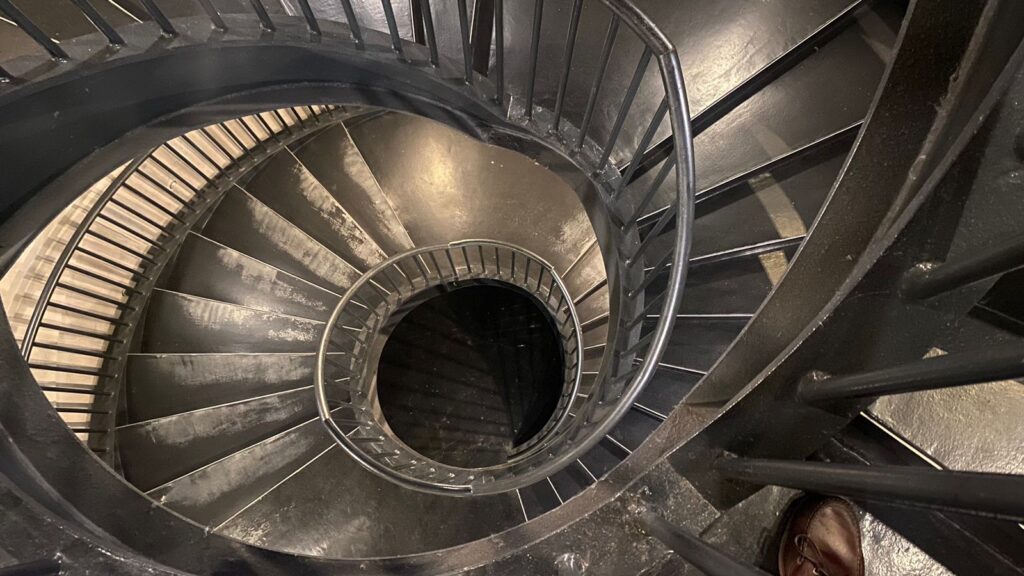
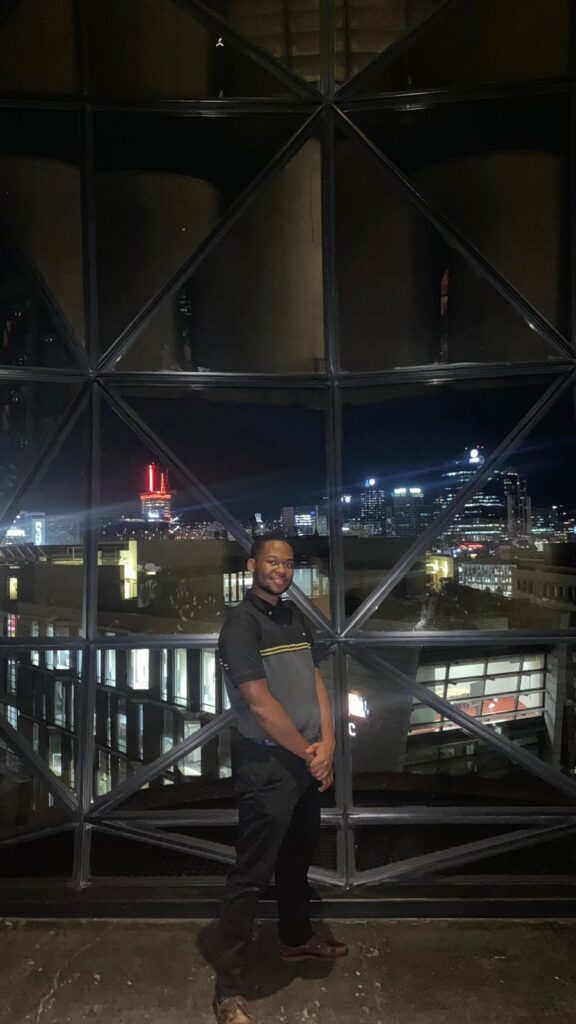
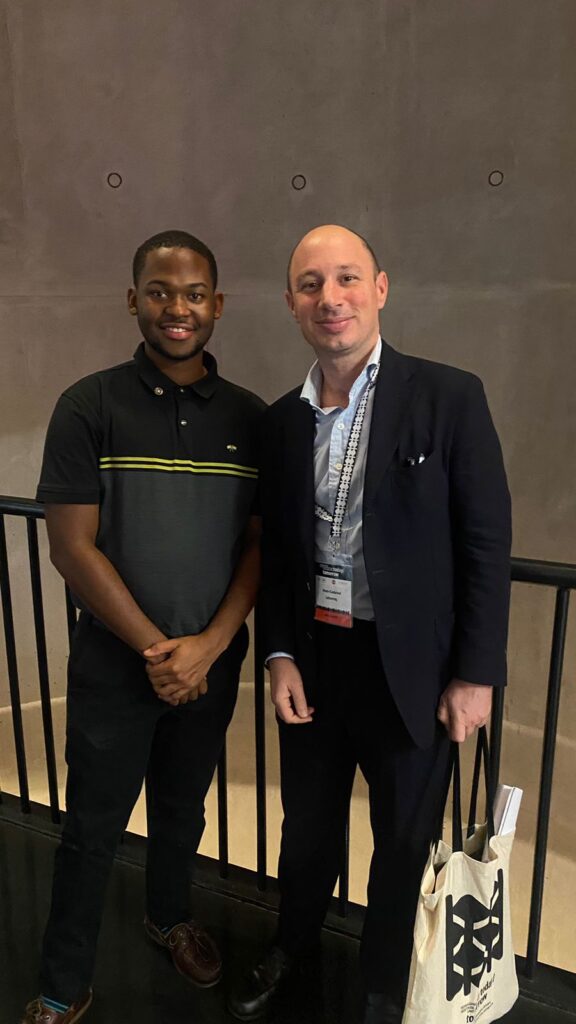
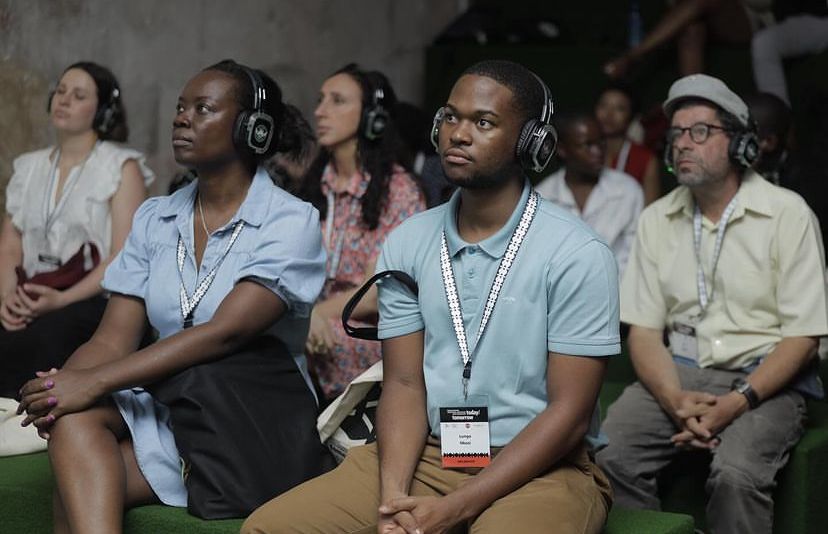
The Jozi Film Festival, which took place in Johannesburg from February 27 to March 3, was an incredible event that allowed us to witness the city’s vast cultural diversity up close and personal. Attractive and thought-provoking discussions were set against the backdrop of this yearly event that features both foreign and local films. Notably, the Tshimologong Precinct and Malik Yoba collaborated on an interesting discussion. Situated in the bustling Braamfontein neighborhood of Johannesburg, the Tshimologong Precinct is a center for creative entrepreneurship, technology, and innovation; it further establishes the city as a crossroads for cinema, technology, and joint ventures. The Jozi Film Festival and Tshimologong Precinct’s coming together highlighted the city’s complex environment, where creativity, technology, and film all coexist.
His plea for deliberate thought and genuine storytelling rings true when we reflect on Yoba’s wisdom-sharing event at Tshimologong on March 1. It serves as a reminder of the power of media to influence narratives and motivate good change.
Those who are navigating the nexus of education, creativity, and social impact will find inspiration in Malik Yoba’s path from a hard schooling experience to a pioneer in community theatre and media. Yoba’s plea for deliberate thought and genuine storytelling strikes a chord, bringing to mind the power of media to influence stories and motivate change.
It was Malik Yoba’s own experiences with the conventional school system that inspired him to do something about it. A more inclusive and engaging approach to education is crucial, as he realized during his own difficult educational journey. Yoba set out on a quest to educate and inspire through the performing arts after realizing the transformative power of theater.
Yoba’s innovative community theater initiatives, most notably the City Kids Foundation, brought her dedication to education to life. Both the promotion of artistic expression and the resolution of urgent social issues were the stated goals of this endeavor. Reducing New York City’s high school dropout rates was a notable goal, demonstrating the power of the arts to inspire and engage young people.
Yoba, during our discussion, stressed that producers should take responsibility for molding media narratives. His main point was that television, despite its influence, shouldn’t control our thoughts but rather encourage deliberate and analytical analysis. When it comes to creating video games, this viewpoint is especially pertinent because of the importance of cultural representation and authenticity in telling the varied and fascinating stories of Africa.
We are deeply committed to telling true stories of Africa through video games, and Yoba’s ideas align well with that aim. By calling for stories that avoid generalizations and instead offer a complex and authentic depiction of African cultures, he hopes to inspire a more deliberate and reflective approach to the creative process. By adopting this outlook, we add to the larger discourse surrounding representation and diversity in the gaming sector.
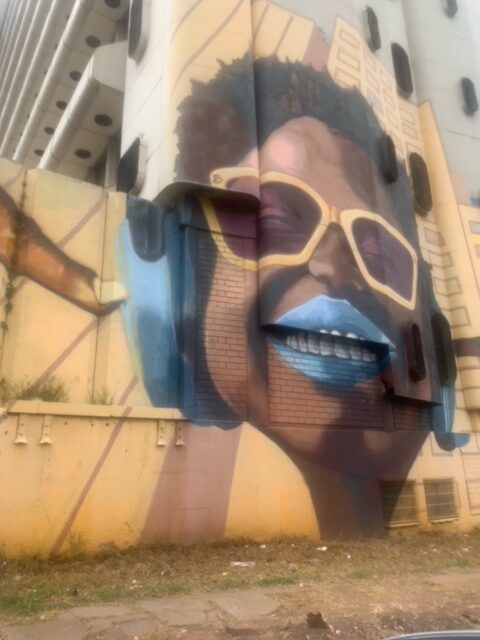
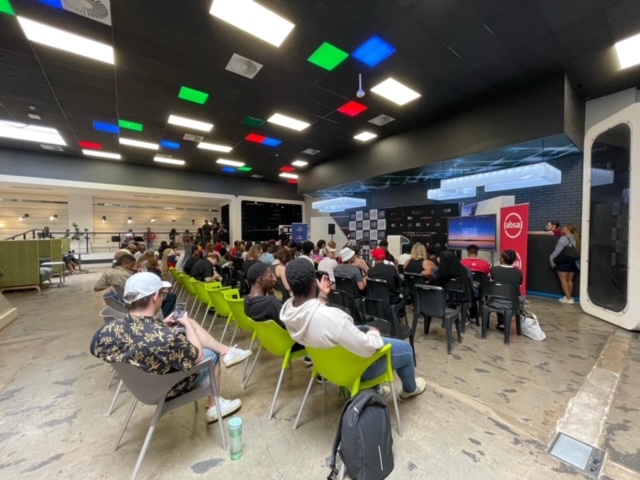
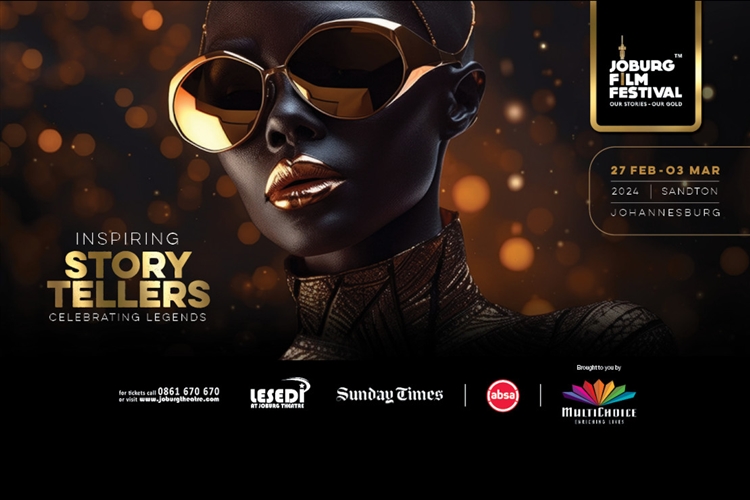
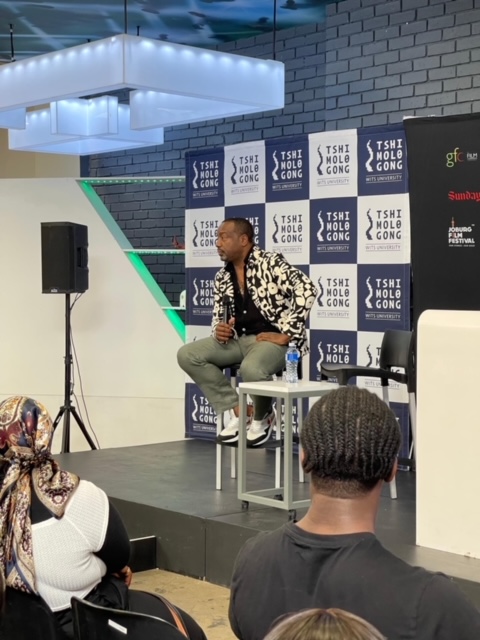
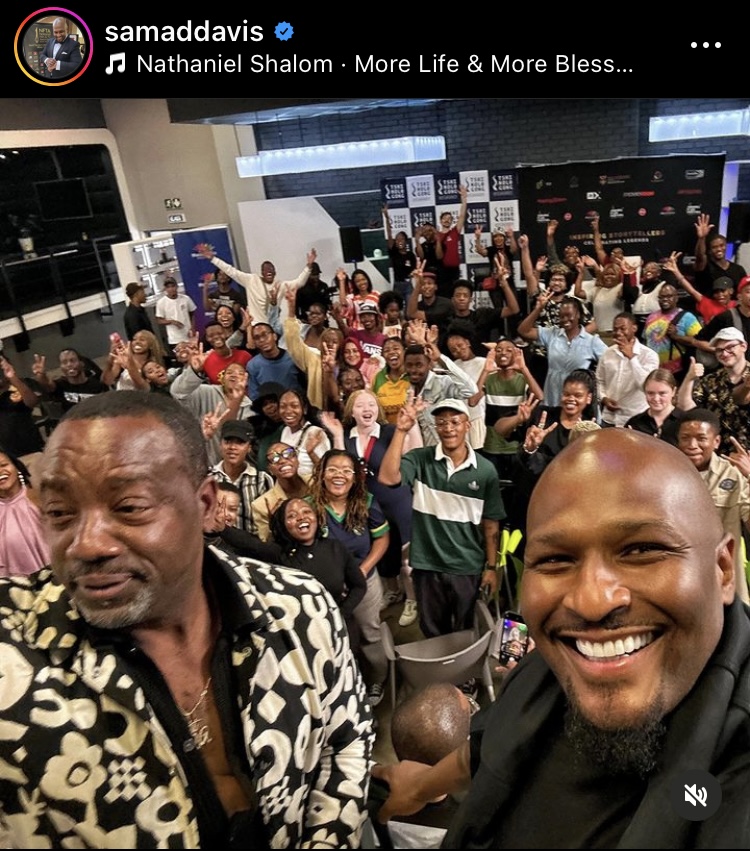
We had the opportunity to attend a session with IFAS Research on March 14. The session was titled “Co-working on Heritage Issues with Local Communities.” Several researchers discussed their individual experiences of collaborating with indigenous communities and embracing their own cultural heritage, rather than conforming to societal expectations. We were captivated by all of them, but Melanie Duval’s work stood out as particularly impactful. She employed PhotoVoice to help young people gain insight into truth from their own perspective.
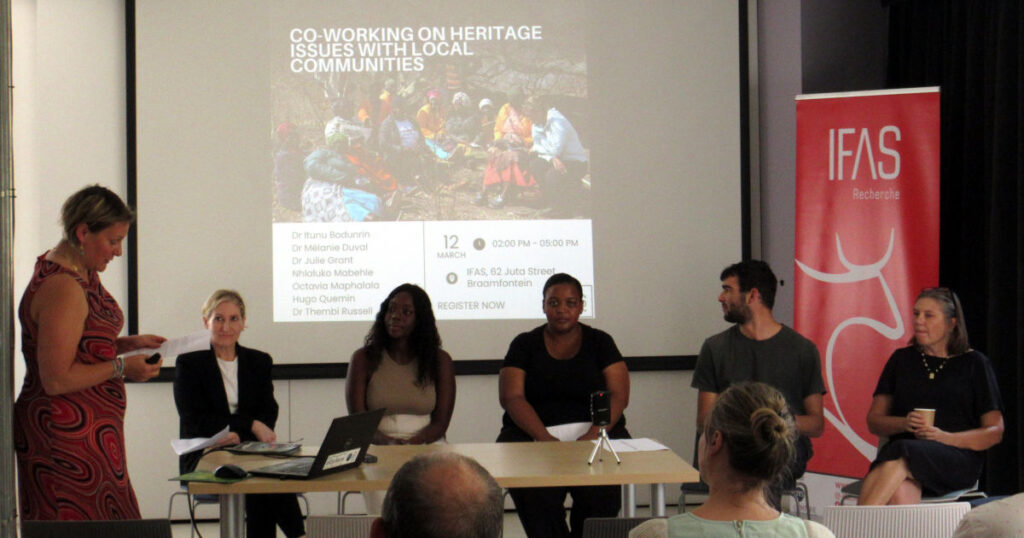
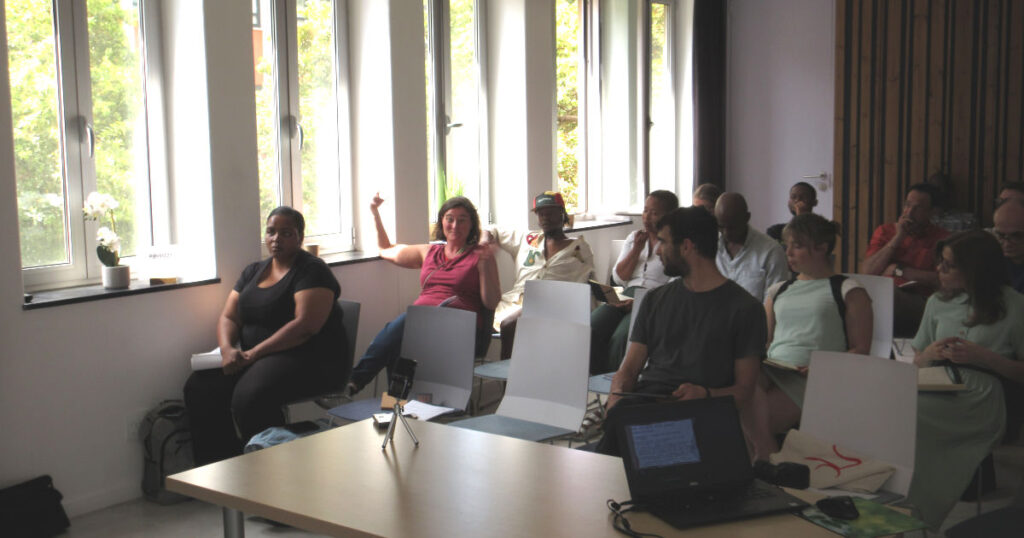
We were delighted to attend the Wits Writing Festival at Witwatersrand University on March 26 and 27, 2024. During our time there, we had the honor of meeting Lerato, the director of the Writing Centre. Our discussions encompassed topics ranging from the fundamental elements of effective writing and how the true task of a writer is to communicate in languages that the audience relates to. Additionally, we were fortunate to listen to the captivating stories of Jaki Seroke, who played a pivotal role in the groundbreaking Staffrider magazine. Dr. Nomsa Mdlaose also graced us with her presence, sharing invaluable insights on the art of storytelling. To top it off, we had the privilege of engaging in writing sessions with Diana Ferrus and exchanging our creative work.
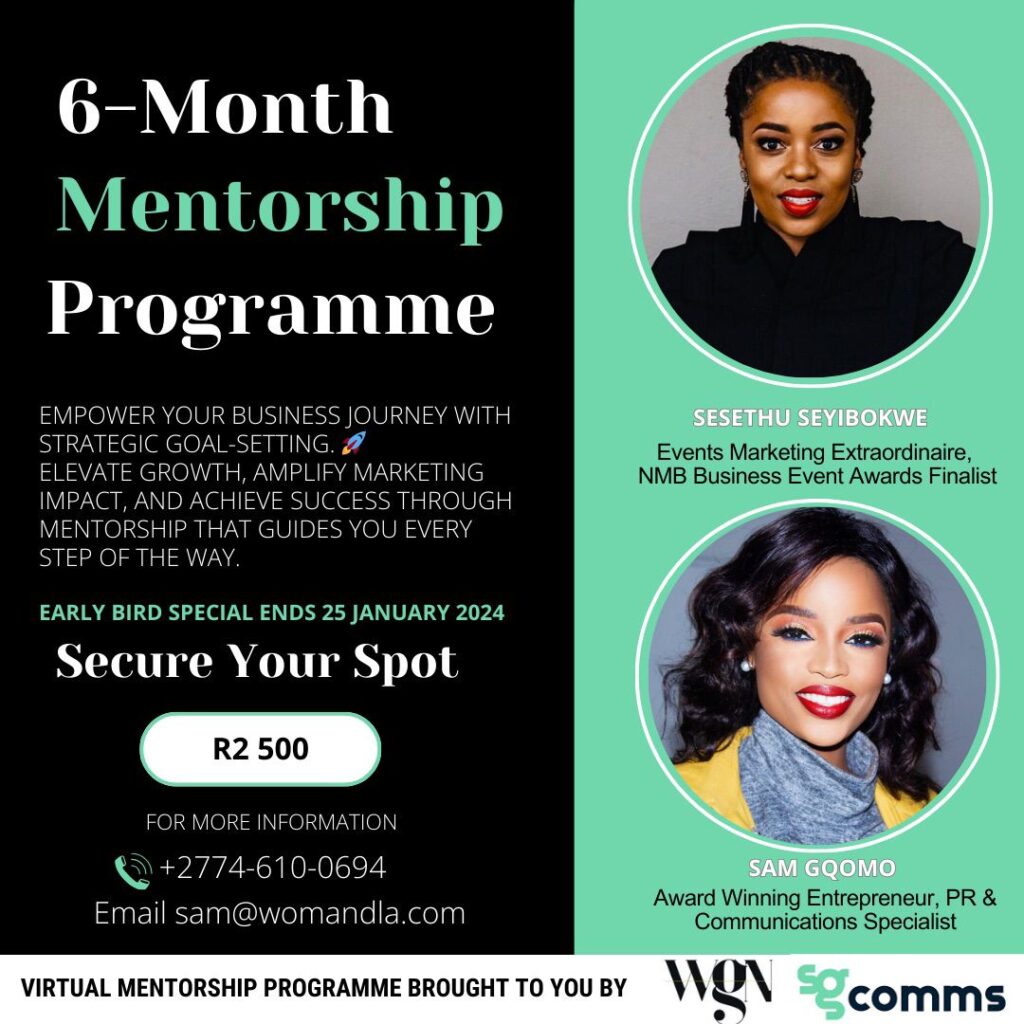
In late 2023, we had the pleasure of meeting Sam Gqomo, the founder of Womandla Global Network in South Africa, at a Goethe event in Johannesburg. During a captivating 120-minute session, Sam thoroughly explores our marketing and message strategy, leaving us astounded. The undeniable impact prompted an immediate decision to consult Sam for a thorough analysis of Peniel’s marketing landscape. As the curtain lifted in 2024, the determination was evident: this year would be unlike any other. The collaboration with Sam was set to be a game-changer for Peniel, completely transforming and enhancing his marketing strategy. This collaboration sets the stage for a year of groundbreaking ideas and strategic expansion, perfectly in line with our future objectives.
During our first session with Sam and Sesethu, I and two other mentees had a discussion about the direction we hope to take in this mentorship. What I have come to understand is that in order to make this game more accessible, we need to simplify the elements by clearly explaining their purpose and target audience. Additionally, we should focus on developing strategies to effectively achieve our goals using SMART goals in the upcoming weeks. We were also assigned some homework to analyze a list of questions and their effects: What event has had a major impact on my life since our last meeting? What has been the impact or significance of this event in my life? What are my true emotions connected to this event? What are you eagerly anticipating on the horizon? What are the three objectives for the upcoming meeting?

